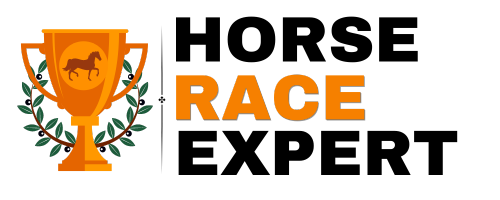The Allure of American Horse Racing: A Guide to the Sport’s Biggest Events
There’s something undeniably captivating about horse racing – the primal power of the animals, their sleek forms flashing past, the thrill of a close finish… it’s been exciting audiences for centuries. And here in the US, we know how to put on a show. From the legendary roar of the crowd at the Kentucky Derby to the glitz and glamour of the Pegasus World Cup, these races are so much more than just a competition. They celebrate the incredible bond between horse and rider and their power to unite people.
Why is everyone so drawn to horse racing? Well, it depends on who you ask! For some, the adrenaline rush of watching those magnificent animals pushes themselves to the limit. For others, it’s the ultimate excuse to get dressed to the nines (think over-the-top hats and fancy outfits) and mingle in the buzzing crowd. Betting enthusiasts find the challenge irresistible – it’s about finding the winning edge, analyzing past performances, and sometimes, just a bit of luck. And for those with a love of history, time-honored races like the Travers Stakes offer a connection to something more significant: the generations of horses and jockeys who’ve left their mark on the sport.

A Brief History of Horse Racing in the US
The love of horse racing runs deep in America. It’s a sport brought over by early settlers, whose passion for fast horses was woven into the fabric of the growing nation. Those first races weren’t always fancy affairs—more like a community gathering to see who had the quickest horse in the county. But by the mid-1800s, horse racing was exploding in popularity. Purpose-built tracks sprang up, crowds swelled excitedly, and the sport became more organized.
Creating iconic races like the Kentucky Derby, Preakness Stakes, and Belmont Stakes—the legendary Triple Crown—solidified horse racing as more than a pastime. It became a part of American sporting tradition, where the fastest horses and most skilled jockeys earned their place in history. This legacy echoes through to today, where both grand, century-old races and newer, dazzling additions to the calendar capture the imagination of generations.
Horse racing has evolved. Now, there are many significant races across the US all year round. Here is a list of the major races and their times and locations.
Absolutely! Here’s a table of 15 major US horse races, their dates, locations, importance, and an approximate popularity ranking.
Please note that popularity can be subjective and fluctuate depending on the specific horses and storylines each year.
| Rank | Name | Date | Location | Importance |
|---|---|---|---|---|
| 1 | Kentucky Derby | First Saturday in May | Churchill Downs, Louisville, Kentucky | The first leg of the Triple Crown, the most iconic American race, a massive cultural event |
| 2 | Breeders’ Cup World Championships | Early November (varies) | Various tracks across the United States | The second leg of the Triple Crown huge party atmosphere |
| 3 | Preakness Stakes | The second leg of the Triple Crown massive party atmosphere | Pimlico Race Course, Baltimore, Maryland | The second leg of the Triple Crown, huge party atmosphere |
| 4 | Belmont Stakes | Third Saturday in June | Belmont Park, Elmont, New York | Richest thoroughbred horse race in the US attracts international stars |
| 5 | Pegasus World Cup Invitational | Late January | Gulfstream Park, Hallandale Beach, Florida | Richest thoroughbred horse race in the US, attracts international stars |
| 6 | Travers Stakes | Late August | Saratoga Race Course, Saratoga Springs, New York | Historic “Midsummer Derby,” premier race for three-year-olds |
| 7 | Santa Anita Derby | Early April | Santa Anita Park, Arcadia, California | Major Kentucky Derby prep, West Coast showcase |
| 8 | Haskell Invitational Stakes | Late July/Early August | Monmouth Park, Oceanport, New Jersey | Grade I stakes race for three-year-olds, East Coast spotlight |
| 9 | Whitney Stakes | Late July/Early August | Saratoga Race Course, Saratoga Springs, New York | Two weeks after the Kentucky Derby |
| 10 | Pacific Classic | Late summer | Del Mar Racetrack, Del Mar, California | Historic race for older horses, a key summer event |
| 11 | Kentucky Oaks | It is an important race for older horses on the West Coast | Churchill Downs, Louisville, Kentucky | Premier race for three-year-old fillies, major Derby weekend event |
| 12 | Arlington Million | Mid-August | Arlington Park, Arlington Heights, Illinois | Grade I international turf race, significant purse |
| 13 | Woodward Stakes | Late summer/Early fall | Saratoga Race Course, Saratoga Springs, NY (sometimes Belmont) | Breeders’ Cup marquee race often determines Horse of the Year |
| 14 | Breeders’ Cup Classic | Early November (varies) | Various tracks across the United States | The final leg of Triple Crown, tests endurance and champions |
| 15 | Pennsylvania Derby | Late September | Parx Racing, Bensalem, Pennsylvania | Top race for three-year-olds, growing prestige |

The Diverse Appeal of Major Horse Races
Major horse races attract a fascinating cross-section of society. Here’s why different groups find them so appealing:
- Thrill-seekers: The sheer speed and unpredictable nature of races create an exhilarating experience.
- Fashion Enthusiasts: Race days, particularly those like the Kentucky Derby, provide an opportunity to showcase extravagant hats and attire while socializing in a festive atmosphere.
- Serious Bettors: Horse racing offers a unique blend of skill and chance, attracting seasoned handicappers who analyze form, pedigree, and track conditions seeking an edge.
- Tradition and Legacy Lovers: Races like the Travers Stakes carry a rich history, providing a connection to the sport’s past.
Horse Racing and Betting: An Intertwined History
From the earliest days of organized horse racing, betting has been integral to the experience. There’s something about the fast-paced, unpredictable nature of racing that lends itself perfectly to wagering. The thrill of potentially winning big, even from a small bet, adds excitement beyond just watching the horses run.
The Early Days: Initially, betting on horses was largely informal. Spectators would make wagers amongst themselves, often based on little more than a horse’s appearance or reputation. As racing became more established, so too did the betting systems. Bookmakers emerged, offering odds and taking bets at the track.
Technology and Evolution: How people bet on horse races has changed dramatically. The introduction of the totalizator (or tote board) in the early 20th century revolutionized track betting. This system pooled bets together, automating the calculation of odds and payouts. Decades later, off-track betting parlors began to appear, making it convenient to wager on races without being physically present.
The internet has been the biggest game-changer. Online betting platforms offer unprecedented accessibility, allowing people to place wagers from anywhere on many races with detailed performance information readily available.

The Growth of the Betting Industry: The rise of modern betting has been fueled by numerous factors:
- Evolving Training: Advances in equine science, nutrition, and training methods have produced fitter, faster horses, making races even more competitive and exciting for handicappers.
- Technological Innovations: Everything from high-speed cameras that analyze a horse’s stride to specialized track surfaces have impacted race results and how information is disseminated to bettors.
- Expanded Data and Education: Resources for analyzing horses and races are more widely available. Websites, publications, and seminars offer in-depth past performance data and expert opinions, aiding severe and casual bettors.
Important Considerations
While the allure of horse racing is undeniable, it’s essential to engage with this sport thoughtfully. The industry faces ongoing discussions surrounding horse welfare, and it’s crucial to support efforts prioritizing these magnificent animals’ well-being. Additionally, if you choose to bet, it’s imperative to do so responsibly by setting limits and always understanding the inherent risks.
Positive Developments in Animal Care
The world of horse racing is committed to continuously improving the care and treatment of its equine and human athletes. Organizations like the National Thoroughbred Racing Association (NTRA) and the Jockey Club promote stricter safety standards, enhanced veterinary oversight, and aftercare programs to ensure horses have fulfilling lives beyond the track. Training, nutrition, and injury prevention advances also provide a healthier environment for horses and jockeys.
Environmental Responsibility
The horse racing industry has begun to make strides towards greater environmental sustainability. Initiatives include:
- Reducing waste.
- Implementing water conservation measures.
- Exploring ways to minimize the carbon footprint of racing events.
These efforts reflect a growing awareness of the importance of environmental stewardship within the sport.

Conclusion
Major horse races are more than just sporting events; they’re a vibrant part of American culture. From exhilarating finishes to celebrating pageantry and tradition, these races embody the thrill of competition and the enduring bond between humans and horses. As the sport evolves, its commitment to ethical practices, including the highest standards of animal welfare and responsible gambling, is critical to ensuring a bright future for horse racing.
By approaching these events with a balanced perspective – appreciating both the excitement and the complexities – we can continue to enjoy horse racing responsibly, preserving its legacy for generations.




